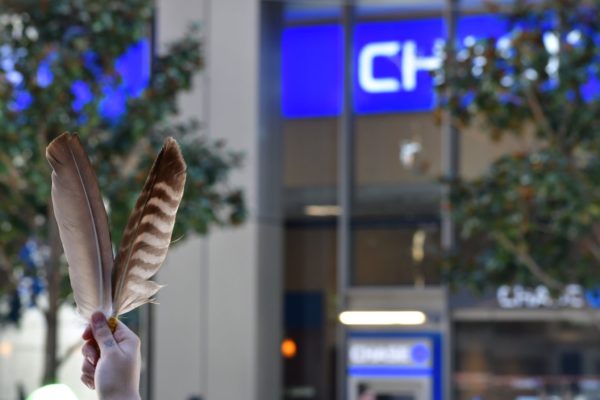
- Details
- By Native News Online Staff
SAN FRANCISCO — Several dozen Indigenous people and environmentalists took to the streets of San Francisco on Wednesday to bring attention to JPMorgan Chase’s ongoing financial support for oil pipelines.
At issue for the protesters is the bank’s financial support for the Coastal GasLink project, which is a $6 billion project of TC Energy, formerly known as TransCanada Pipelines.
The protest assembled at JPMorgan Chase’s headquarters, where four Indigenous protesters locked themselves down and remained there until Thursday morning. The lockdown protest was organized by Abolish ICE SF in solidarity with other groups.
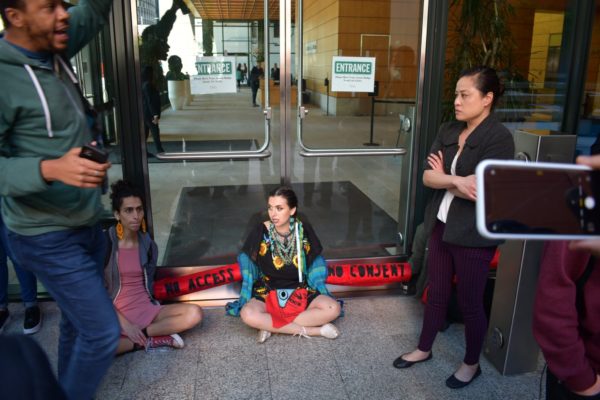
The Coastal GasLink pipeline route goes through several First Nations communities and the leaders are not happy. Last month, all five hereditary chiefs of the Wet’suwet’en Nation, a First Nation in Canada, evicted Coastal GasLink from their homeland. Tensions escalated as Wet’suwet’en citizens protested and resisted. Several arrests have been made by the Royal Canadian Mounted Police (RCMP).
Indigenous and environmental groups in San Francisco say the pipeline project is directly connected to the San Francisco Bay area because it will pave the way for other projects, such as the TransMountain pipeline, a tar sands pipeline slated to go through Secwepemc territory. These pipelines are slated to increase the amount of oil flowing into the Bay area’s refineries and negatively impact the environment.
After the lockdown ended on Thursday, Abolish ICE SF posted the following message on its Facebook page:
“The Indigenous blockaders have decided that we want to leave on a strong note and save our energy to keep putting pressure and sustaining ourselves in the Wet’suwet’en work. After 17 hours of presence here, we are in being in high spirits and emboldened to continue this work in coming weeks, months, however long until Coastal GasLink is ended…In solidarity,”
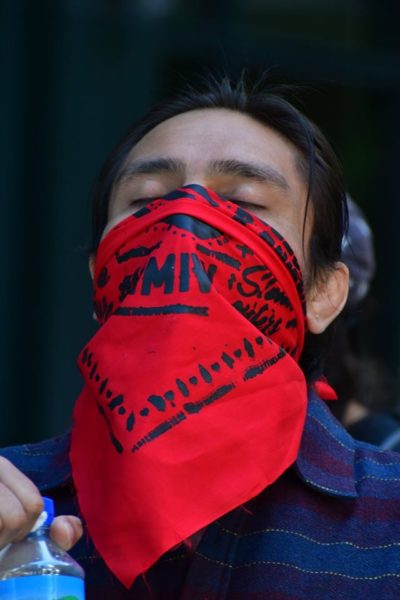
Among the protesters were those wearing MMIW scarfs to bring attention to the epidemic crisis across Indian Country of missing and murdered Indigenous women.
Though faced with the threat of arrest, there were no arrests at the lockdown.
Photos courtesy of Norm Sands (Yaqui/Apache) who is a member of Idle No More SF chapter and co-founder of MMIW/P of California.
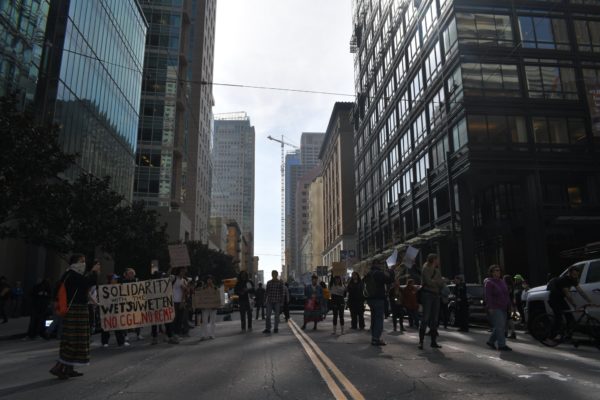
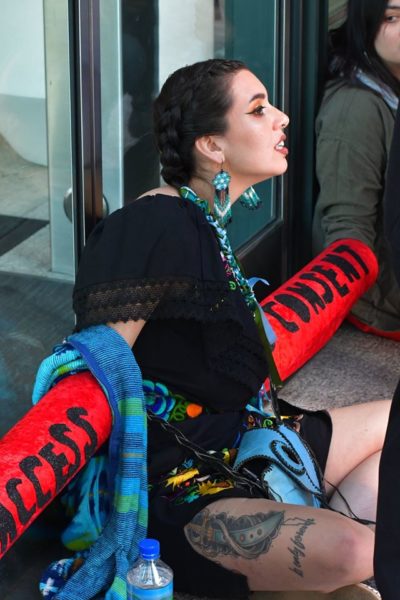
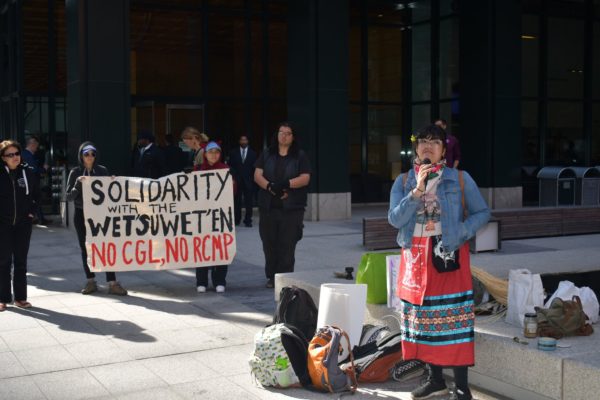
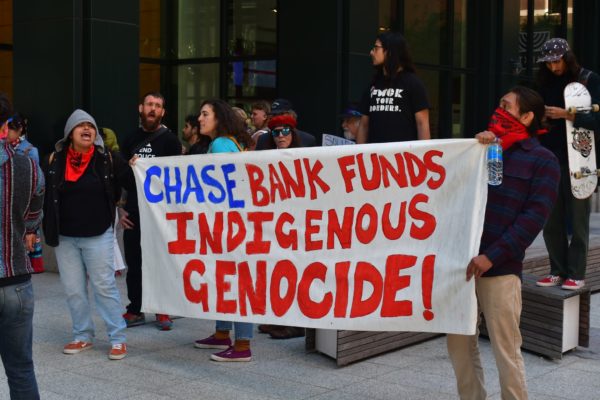
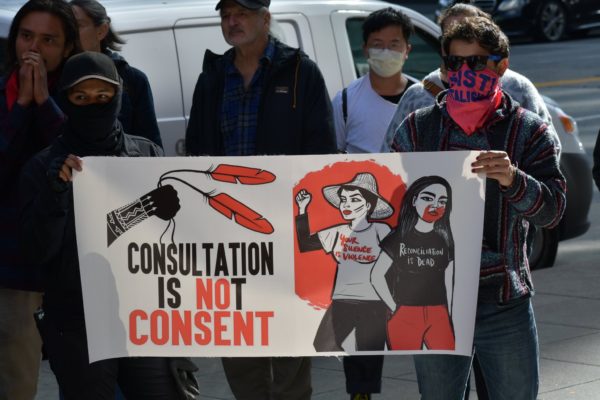
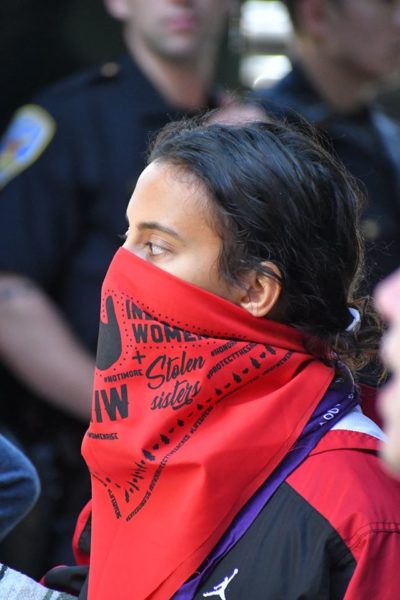
More Stories Like This
Native News Weekly (August 25, 2024): D.C. BriefsNavajo Nation Mourns the Passing of Former Vice President Rex Lee Jim
Deb Haaland Earns Endorsement From Communications Workers of America Local 7076
University Soccer Standout Leads by Example
Two Native Americans Named to Democratic Congressional Campaign Committee's“Red to Blue” Program
Help us defend tribal sovereignty.
At Native News Online, our mission is rooted in telling the stories that strengthen sovereignty and uplift Indigenous voices — not just at year’s end, but every single day.
Because of your generosity last year, we were able to keep our reporters on the ground in tribal communities, at national gatherings and in the halls of Congress — covering the issues that matter most to Indian Country: sovereignty, culture, education, health and economic opportunity.
That support sustained us through a tough year in 2025. Now, as we look to the year ahead, we need your help right now to ensure warrior journalism remains strong — reporting that defends tribal sovereignty, amplifies Native truth, and holds power accountable.
 The stakes couldn't be higher. Your support keeps Native voices heard, Native stories told and Native sovereignty defended.
The stakes couldn't be higher. Your support keeps Native voices heard, Native stories told and Native sovereignty defended.
Stand with Warrior Journalism today.
Levi Rickert (Potawatomi), Editor & Publisher

